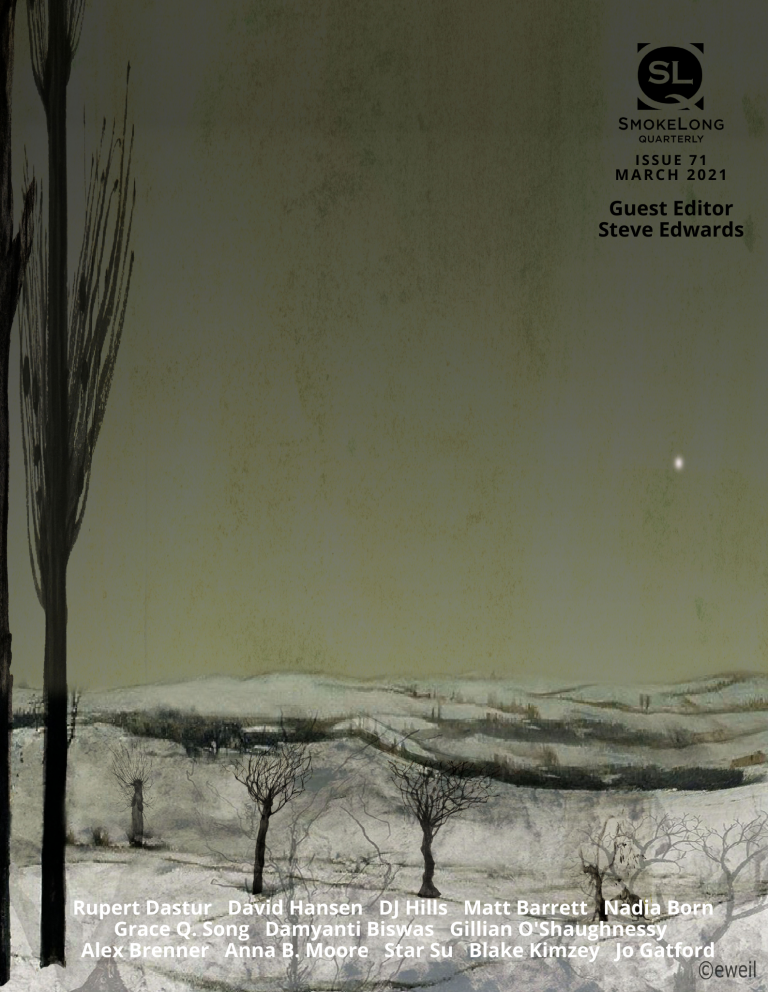Your debut is a crime novel and you cite Truman Capote’s In Cold Blood as a seminal influence on your writing. Here, we have quite a tender story, though we do get that touch of tragedy and injustice in how Tripta was dismissed in life. What is it in your writerly DNA that yields both crime stories and a story like this—and are they so different in your mind?
This is something I think about a lot, and have not been able to come to any conclusions. I’ve realized that I have a thing with injustice, a finely-tuned antenna for it, if you will. Part of it stems from my childhood—a period of my life it took me decades to recover from, but there’s also the country I was born in and which I now visit only on occasion. Injustice exists to some extent no matter where you live—it is just that the injustices in my home country, especially towards women, can sometimes be so stark, and receive such little genuine redressal, especially when seen from a distance—a perspective that my privilege affords me now. You Beneath Your Skin, my debut novel, was triggered in part by the New Delhi gang rape in 2012 of a young girl out on a road with a friend at eight p.m., an incident that left her intestines on the street. I chose to channel the helpless rage evoked by this brutality into my fiction, and find that over the years, many of my stories do speak of injustice against women, and that crime, more often than not, acts like a scalpel peeling back the layers of gentility, pretense, and complacence that we cocoon ourselves in.
The narrator has never made shorshe jhaal and payesh without her mother-in-law, the thought of prepping the fish with their scales and dead eyes makes her “recoil,” and yet she does so for Tripta’s final meal. There’s something so touching in this act of solidarity. In the world of the story, do you imagine Tripta’s soul feeling this? Is remembering someone akin to inviting their soul’s presence?
I don’t remember where I heard it first, but I maintain that a person only dies when they’re remembered for the last time. The belief system behind the ceremony for the dead, the Hindu sharaddha ritual, is about inviting the departed soul to be satisfied, and to leave the earthly plane towards the light. So yes, my writer’s imagination believes this to be true.
I’m intrigued by your use of fragments to tell this story. Was that something that organically happened as you started writing or was it a conscious formal decision?
I never write flash fiction with conscious thought. Structural considerations only come up if I feel the story is drowning without it, and is possibly worth the effort of tinkering with the structure. My notebooks are filled with what I call “writing practice”—abandoned flash pieces. This story came to me in its basic form during a sort of writing “Decameron” organized by one of my kind writing friends, when the lockdowns started in 2020.
As this story shows, food is such rich material. It evokes tradition and issues of class and gender, generates sensorial detail, and it even satiates a bodyless soul. What is your personal relationship to food and how do you approach it as a narrative tool/subject?
I’ve moved pretty often as a grown up, and in my experience, one of the easiest and most effective ways to experience a new place, or to bond with people, is to pay attention to the food and to remain open to its possibilities. We all know and understand food—it has a certain universal appeal and resonance. As such, the emotions it prompts can be excellent ways to evoke character and place, as well as move forward the plot. It can reflect or contrast a character’s desire and it can situate the reader in the world of the story through the senses of smell, touch, taste, vision, and even hearing. The swish and clank of eggs being whipped by hand always takes me back to my father baking dense, too-sweet, heavy cakes for my birthdays, and when I write, I imagine food descriptions having a similar effect on my readers.
Late in the story, we find out tripta means “satiated, pleased.” What ingredients in a flash piece leave you feeling tripta?
An ending that satisfies, that I may not have seen coming but that does not sound tricksy, that lifts the piece, opens it up, leaves me dwelling on it, seems inevitable. A story that is not purely cerebral, that moves me in unexpected ways. Prose that evokes far more than is said, that has a rhythm when read aloud, that possesses a light touch, despite being heavy with significance. For me the best flash is one that illuminates a far greater expanse than it occupies on the page.



 The core workshop of SmokeLong Fitness is all in writing, so you can take part from anywhere at anytime. We are excited about creating a supportive, consistent and structured environment for flash writers to work on their craft in a community. We are thrilled and proud to say that our workshop participants have won, placed, or been listed in every major flash competition. Community works.
The core workshop of SmokeLong Fitness is all in writing, so you can take part from anywhere at anytime. We are excited about creating a supportive, consistent and structured environment for flash writers to work on their craft in a community. We are thrilled and proud to say that our workshop participants have won, placed, or been listed in every major flash competition. Community works.